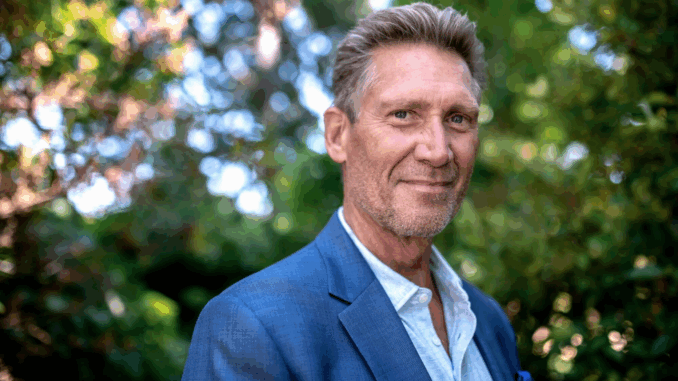
A Quiet Phenomenon Making a Loud Statement
When The Golden Bachelor was first announced, many critics assumed it would be little more than a novelty—an age-flipped experiment in a franchise known for its glossy aesthetics and drama-laden tropes. But as the season unfolded, it became evident that this wasn’t a gimmick. It was a gentle but radical statement: Love, vulnerability, and transformation don’t have an expiration date.
What began as a televised quest for companionship has evolved into something more meaningful. The show has triggered a national conversation about aging, loneliness, and the unspoken desires of people society often forgets to include in its romantic narratives. In doing so, it has tapped into a deep emotional current among viewers of all ages.
The Unseen Lives of Older Adults, Now Seen
Television has rarely treated older adults—especially older women—as romantic leads. Too often, characters over 60 are relegated to comic relief or side roles, their interior lives flattened into stereotypes. But on The Golden Bachelor, women in their 60s and 70s share stories about heartbreak, widowhood, re-entering the dating world, and the ache of missing out on a second chance at love.
Contestants like Sandra, who left a marriage after 30 years, or Joan, who took time off mid-season to care for her family, have brought emotional weight to the screen that isn’t often present in the Bachelor universe. Their presence doesn’t just “represent” older people—it affirms that their stories matter, that their emotions are still sharp and their desires still active.
In one episode, a contestant shared how hard it was to feel invisible in her everyday life, especially after retiring. “Nobody looks at you the same way once you hit a certain age,” she said through tears. “But here, I feel seen again.” That line struck a nerve across social media, igniting threads about ageism, self-worth, and societal neglect.
Families Are Watching—Together
One of the most surprising impacts of The Golden Bachelor has been how many families are watching the show as a multigenerational experience. From TikTok to Reddit, younger fans are posting clips of their moms and grandmothers watching the show, often with commentary that swings between amusement and awe.
“This is the first time my mom and I have both genuinely loved the same Bachelor season,” one viewer posted. “I never thought I’d be crying next to her over people falling in love at 70.”
For many adult children of aging parents, the show has sparked overdue conversations: about dating again after a spouse’s death, about starting over, about emotional needs that remain urgent well into retirement. It’s made visible the layers of life after middle age—something pop culture often ignores.
Dating at 70: Not Simpler, Just Different

One of the show’s most refreshing elements is its approach to dating dynamics in later life. While the Bachelor franchise is known for whirlwind proposals and adrenaline-filled dates, The Golden Bachelor is more reflective. The show’s pacing allows for real conversations about mortality, grown children, blended families, financial independence, and companionship over physical passion.
Gerry Turner, the 72-year-old lead, has brought his own experiences of loss into the dating process. His candidness about grieving his wife, learning to live alone, and choosing vulnerability again gives the show its emotional core. Rather than perform romance, he embodies it—through quiet gestures, meaningful eye contact, and thoughtful conversations.
“I’m not looking for someone to complete me,” Gerry told one contestant. “I’m looking for someone to walk beside me.” That one sentence encapsulates the entire premise of the show—and perhaps why it feels so revolutionary.
Why Audiences Are Invested
Part of the reason audiences have connected so deeply to The Golden Bachelor is its honesty. The stakes feel real not because of flashy drama but because of time. For many contestants, this isn’t just about “finding love.” It’s about making the most of the years they have left and refusing to believe that they’re no longer worthy of new beginnings.
Viewers have praised the show for its tone—tender, respectful, emotionally authentic. “This show made me want to call my mom more often,” one fan wrote. “It made me realize how much life she’s still living, and how much I never ask her about it.”
The relatability of these contestants—not as archetypes, but as whole people—has reminded audiences that aging doesn’t erase the desire for intimacy, adventure, or even butterflies.
The Road Ahead: What Legacy Will It Leave?
As this inaugural season of The Golden Bachelor nears its conclusion, speculation is mounting about the next chapter. ABC has not confirmed a Golden Bachelorette, but the demand is overwhelming. Fans have already nominated favorite contestants, from the poised and candid Ellen to the resilient and warm-hearted Faith.
More importantly, the show’s impact could ripple far beyond reality TV. Already, entertainment critics are calling on networks to greenlight more projects that spotlight older adults not as background players but as protagonists with full, rich emotional lives.
If nothing else, The Golden Bachelor proves that audiences are hungry for stories that reflect every stage of life. The romance, the fear, the bravery—it’s all there. And it deserves screen time.